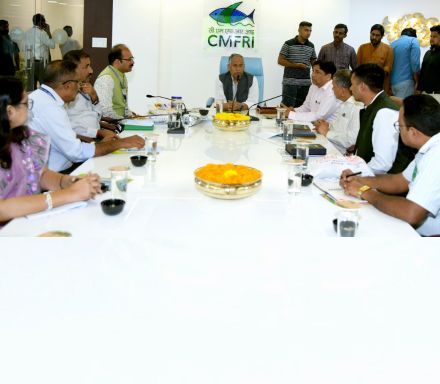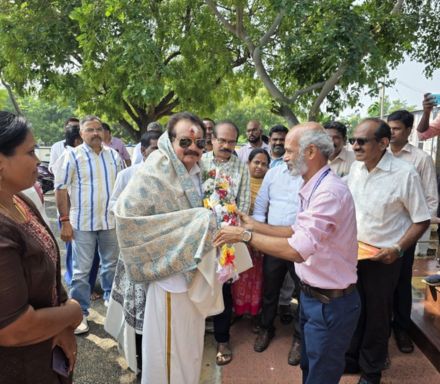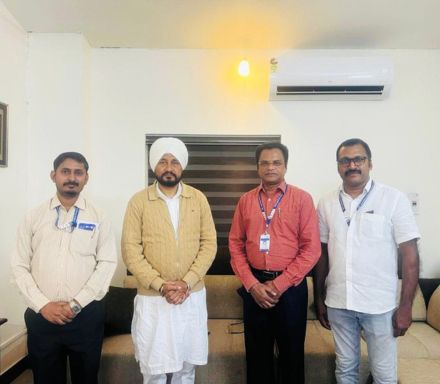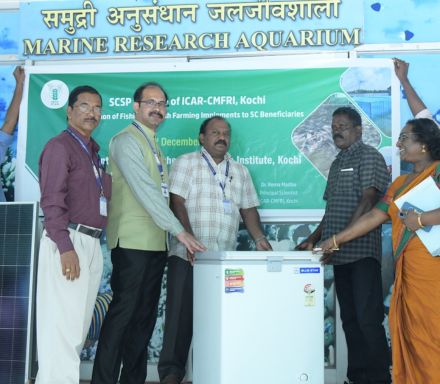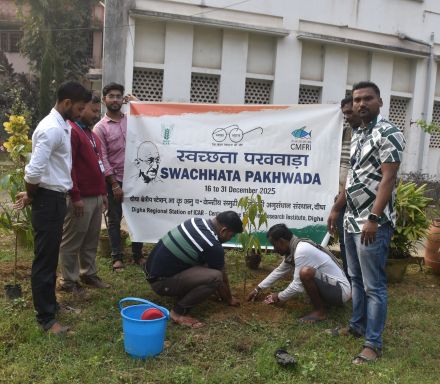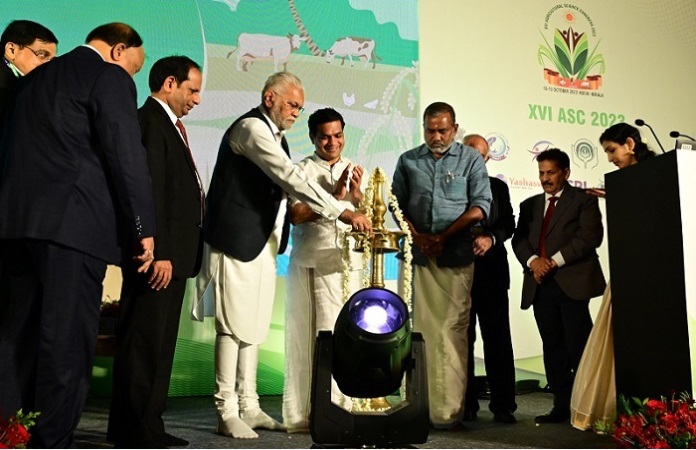
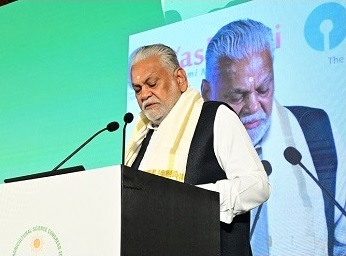
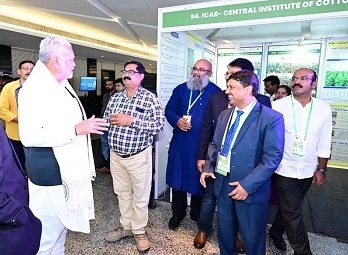
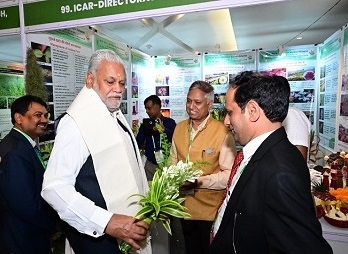
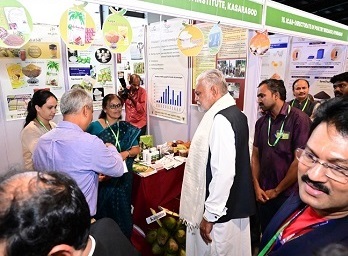
Union Minister Parshottam Rupala calls for innovations to foster sustainable agri-food systems 16th Agricultural Science Congress gets underway in Kochi
Kochi, Oct 10: In view of the increasing food demand,environmental degradation and the challenges posed by climate change, there isan urgent need to transform agri-food systems into sustainable enterprisesthrough scientific innovations, Union Minister of Fisheries, Animal Husbandryand Dairying Parshottam Rupala said. He was speaking after inaugurating the16th Agricultural Science Congress (ASC) here on Tuesday.Mr Rupala added that the agricultural scientists should strive to infusegreater mechanisation in the agriculture production process and develop andpopularise specialised farm implements for women in agriculture.Looming threatof coastal pollution.The Minister shared his observation during the SagarParkirama drive that marine and inland water pollution has seriously affectedaquatic life and coastal ecology. He exhorted the scientists to find lastingand sustainable solutions to address this perilous threat.Reviving pokkalifarming system.Sharing his enthusiasm, the Union Minister highlighted thattraditional farm products such as pokkali rice needs to be promoted andmeasures are to be taken to ensure profitability for the pokkali farmers. Hesuggested that minimising post-harvest losses is equivalent to boostingproduction and this can be achieved by focusing attention on advancedtechnological interventions.Parshottam Rupala further added that the future ofIndia’s agriculture depends a lot on how the accumulated scientific knowledgecan be translated to commercial success.The Minister also inaugurated the AgriExpo being held on the side-line of the event which showcases innovativeagricultural technologies of public and private sector research institutes,universities, agro-industries, extension agencies and NGOs. The minister gaveaway Dr. B.P. Pal Award for Excellence in Agricultural Sciences, Dr. A.B. JoshiMemorial Lecture Award and several other NAAS awards to the recipients.
India’s food grain demand will rise to 340-355metric tonne by 2033
Dr Himanshu Pathak, Secretary to the Department ofAgricultural Research and Education (DARE) and Director General of the IndianCouncil of Agricultural Research (ICAR) delivered the presidential address. Heread out Prime Minister Narendra Modi’s message to the Congress. Dr Pathak saidthat India’s food grain demand will rise to 340-355 metric tonne by 2033.Research on genomics and genome editing would be the core focus fortechnological breakthroughs in agriculture and commodities where traditionalbreeding cannot yield the desired results, he added.
Nutritional Security
Kerala Agriculture Minister P Prasad stressed onensuring food and nutritional security for all the citizen of the country,while maintaining the health of the ecosystem and environment intact. He wasemphatic that the ‘Poshaka Samrudhi’ scheme recently launched by thegovernment of Kerala will contribute towards this goal. The minister also said that it is the time to turnto carbon neutral development pathways, and focus on newer technologies toaugment production, adding that post-harvest sector also needs urgentattention.Hibi Eden MP and Dr J K Jena, Deputy DirectorGeneral of ICAR were the guests of honour at the inauguration of theAgricultural Science Congress (ASC). Following this, Prof. Panjab Singhdelivered the Dr A B Joshi Memorial Lecture. NAAS Secretary Dr W S Lakra andCMFRI Director Dr A Goplakrishnan spoke on the occasion.Organised by the National Academy of Agricultural Sciences (NAAS), the ASCwill come out with recommendations that facilitate the agriculture sector formoving towards a path of greater sustainability. Leading agriculturaleconomists, scientists,entreprenuers and other stakeholders will involve indiscussions on applications of modern scientific tools andpractices, climate action, advances in genomics, IPR policy,etc. Over 1500 delegates from India and abroad are attending thefour-day event, which is taking place for the first time in Kerala and hostedby the Central Marine Fisheries Research Institute (CMFRI).

